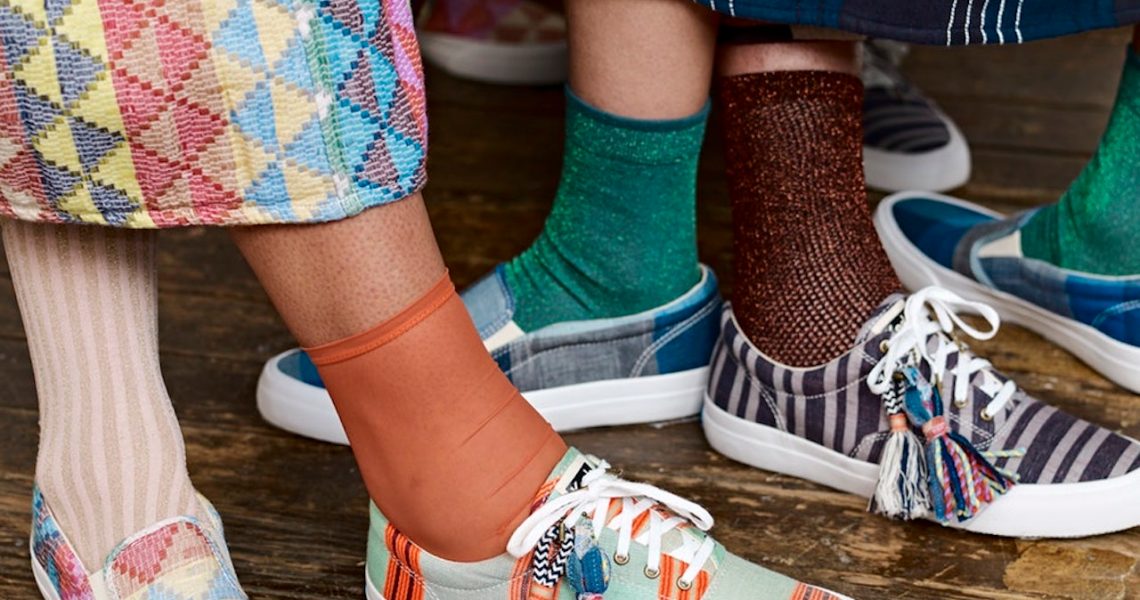Keds is the latest footwear brand to dip its toes into the world of sustainable fashion. The brand has created a new collection of shoes with textile company Ace & Jig which includes a limited-edition shoe made entirely from the scraps of material used for the rest of the collection. It will be sold in limited distribution for one day only, at Nordstrom’s Los Angeles stores on Thursday.
The No-Waste Shoe uses all the leftover materials from shoe production. According to Keds, the design was not meant to follow an of-the-moment trend, but instead, it’s meant to have a more classic look. For Keds, the shoe is part of its two-pronged approach to sustainability: Making styles from more ethical materials and making those that are meant to have a longer shelf life than the typical sneaker.
“The most important piece is getting rid of the idea of throwaway fashion and creating communities that subvert that,’ said Holly Curtis, global vp of product at Keds. “It’s more common in the footwear space to have a shorter lifespan. If you buy a really expensive dress shoe, you might be more likely to hold onto it for a long time, but sneakers churn through trends fast. By elevating the idea of the sneaker and creating something outside of trends, you’re putting it in a special place.”
This is a conscious break from much of the sneaker industry, where the constant drops of brand-new products encourage customers to cycle through their sneakers quickly.
“In sneaker industry, there are so many layers,” said Corey Pierson, CEO and co-founder of customer analytics company Custora. “There’s the whole secondary market, the athletic brands and casual brands like Allbirds. There are so many different layers to this market that was once much more niche. The culture is much bigger and the perimeter around it has grown quite a bit to include lots of different kinds of brands.”
Keds is not the only sneaker brand getting behind sustainability. Last week, Adidas, one of the biggest brands in sneakerhead culture, launched the Futurecraft Loop, a shoe made from recycled materials and meant to be recycled. Everlane launched its own sustainable sneaker earlier this month, and Allbirds released an Earth Day-themed collection to support endangered birds.
As sustainability becomes more common in the fashion world, the question is how the messaging around sustainability will change. Pierson said, right now, most fashion brands have “sustainability as one prong of their business,” with only a few, like the aforementioned Everlane or Stella McCartney, making sustainability the core identity of the brand.
As the appetite for sustainable brands grows enough to the point where every brand has some element of it, it will become increasingly difficult for brands dabbling in sustainability to make an impact.
“Already, eliminating excess water waste is becoming normal,” said Curtis. “If you’re just churning through trends, it’s harder to stand out. We’ve focused on marketing to women and creating products that are meant to last a long time, and because of that, we are going to make some decisions that will change our marketing. We want to get to a place where it’s not just that we have one sustainable product in the middle of many that aren’t.”




